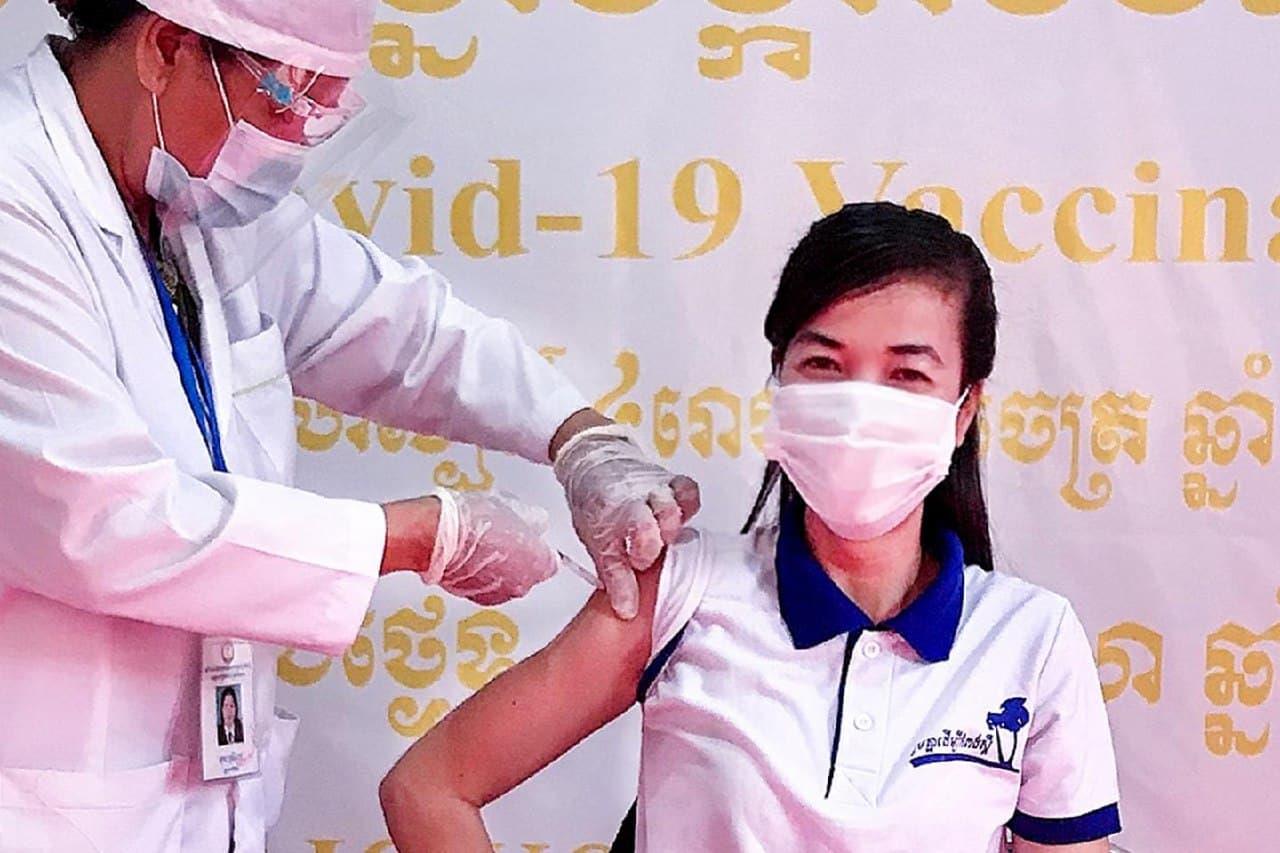Phnom Penh (FN), Jun. 6 – Below is full article by UNICEF Cambodia, entiled “Cambodia leads in vaccinating teachers,” released on 5 June 2021.
“Thanks to leadership of Royal Government of Cambodia and support from UNICEF, Cambodia has vaccinated 71% of teachers, one of the highest rates in the world.”
Cambodia is facing its most difficult time since the pandemic began, with infection rates and deaths both at their height, and many major urban areas enduring the country's first strict lockdowns. Yet even amidst such challenges, UNICEF is working hard with the Royal Government of Cambodia to ensure recovery work is underway. UNICEF’s support is crucial to the country's vaccination programme, which has so far reached 1.27 million of its 16 million population, the second highest rate in the ASEAN region after Singapore. This number includes thousands of teachers, who have been chosen as a priority group by the Government after UNICEF advocated for this measure as a powerful step towards permanently restoring education to Cambodia's children.
In fact, Cambodia is one of just 17 countries in the world to prioritise teachers in its first wave of vaccinations. By mid-April, 71% of teachers had received at least one vaccination dose, with a target of reaching 100% by the end of the month. "I admit I was nervous about the side effects at first, but after I felt as good as usual," said Khem Rithy, deputy director at Rolaing Chhouk Secondary School in Kampong Speu. She is one of the first teachers to receive both of her vaccine doses. “When Cambodia is totally safe, everything can go back to normal, including learning in schools.”
Protecting children’s education has been one of UNICEF Cambodia's most urgent priorities throughout the pandemic, requiring an “all hands on deck” approach from its programmes. As well as the health programme’s advocacy for teacher vaccinations, the education programme worked closely with the Ministry of Education, Youth and Sport (MoEYS) to provide teachers with necessary tools, and students with study materials to make distance learning possible. The health and education programmes also worked closely with the communications and supply teams to keep children, families and schools informed on how to protect children from the virus, with COVID-19 preparedness booklets and hygiene materials distributed to all 13,000+ schools across the nation. The WASH programme continued its work of ensuring that all schools had the facilities for children to wash their hands regularly, a crucial requirement for re-opening.
However, it was always recognised that vaccinating teachers would a key step towards ensuring Cambodian schools could open again permanently, which is why this was such a vital advocacy goal. “This vaccination is so important for teachers,” said Chhoam Vibol, a deputy director in a primary school in Sihanoukville, one of the nation’s COVID-19 hotspots. “If we didn’t have it, I think parents would be too worried to send their children to schools when they re-open.”
UNICEF is supporting the Cambodian Government’s vaccination programme on multiple levels, including logistics, training and communications. It has helped procure, install and maintain cold chain equipment to boost storage and transport capacity. This ensures that the distribution of COVID-19 vaccines does not overstretch existing capacities and disrupt other immunisation services, while also strengthening existing health systems so that Cambodia will continue to benefit when the pandemic is over. It has worked closely with the Government and partners like the World Health Organization on key communications materials, from video explainers encouraging take-up of vaccine and debunking misinformation to leaflets given to vaccine recipients on side effects and the importance of continued preventative measures.
Sieng Sok Lay is a primary school teacher in rural Takeo. She said, “I think that it's so important to open schools again in the near future because classrooms are where children build solid knowledge. I think re-openings schools is safer now that teachers are aware of all necessary measures such as social distancing, handwashing with soap, and wearing face masks, and are also getting vaccinated.”
UNICEF is now advocating for a traffic light system to be adopted to manage school re-opening and closures in a risk differentiated manner. This would allow some schools in areas of low infection to open sooner than schools in locations with high infection, while putting in place the steps to ensure all schools can re-opening safely as soon as possible.
“Teachers have been the unsung heroes of this pandemic,” said Foroogh Foyouzat, UNICEF's Representative in Cambodia. "They have educated children and families on how to stay safe, and gone to extraordinary lengths to keep their students learning. We have heard of teachers who have walked incredible distances to deliver printed study materials to children who were not online. These frontline workers play an essential role not only in delivery of education services but in the recovery of Cambodia, and I want to commend the Government for recognizing their critical role, and for working so hard on an accelerated vaccination programme which has enabled us to reach this milestone."
https://www.unicef.org/cambodia/stories/cambodia-leads-vaccinating-teachers
=FRESH NEWS





